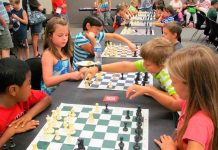План – конспект
Урока английского языка, 11 класс, В.П. Кузовлев и др.
Тема: “It is difficult to imagine it as an invention”.
Разработан учителем
Английского языка
МБОУ сош №9 г. Холмска
Сахалинской области
Устиновой Т.В., 2013
Цель урока:
Развитие монологических высказываний.
Задачи урока:
-
Совершенствование лексических навыков говорения.
-
Практиковать учащихся в чтении с целью извлечения детальной информации.
-
Практиковать учащихся в работе в группах.
-
Совершенствование грамматических навыков говорения (повторить Past Simple Passive).
-
Воспитывать умение общаться с одноклассниками.
Оборудование:
Учебник «Английский язык», 10-11 класс; рабочая тетрадь; тексты из рабочей тетради для подготовки к ЕГЭ; рабочие листы с кроссвордом для релаксации; компьютер; проектор; экран.
Ход урока
| Организационный момент. Приветствие. Определение задач урока. | — Good morning, students! — I’m very glad to see you. — How are you?
— I’m fine, thank you. Sit down. — What date is it today? — What day of the week is it? — What is the weather like today? — What is temperature? — What does it mean – Centigrade? Translate.
— Do you know that the first thermometer was created by Italian scientist Galileo Galilee in 1592. Well, students. What is the topic of our lesson? What do you think?
— What problems will we discuss during the lesson? What will we speak about?
| — Good morning, Tamara Vasilievna! — Thank you. We are glad to see you too. — Fine, thanks. And you?
— Today is the 6th of March. — It’s Wednesday. — It’s cold, windy and it freezes. — It’s 50 above zero by Centigrade. — Centigrade means стоградусная шкала. This thermometer was developed by Celsius in 1742. It’s used in Europe and in our country. The USA and Great Britain are used with the thermometer of Fahrenheit.
— The topic of our lesson is “It is difficult to imagine it as an invention”.
— What inventions were made in the 19th and the 20th centuries? — Who were the inventions? What countries were they made in? When were they made? | ||
| 2 | Фонетическая зарядка. Совершенствовать такой аспект языка, как фонетика. Формирование произносительного навыка. | Before discussing those questions we’ll pronounce following words and phrases: [t][d]’ patent, patented, invented, develop, developed build, built. [r] produce, produced, operate, operated, create, created, camera, recorder, trainers, stereo [h]’ hamburger, helicopter, have, hade [h] house, hold, household, home, at home [w] would, wouldn’t, why, when, wash, washer |
Учащиеся произносят за учителем. | |
| 3 | Речевая зарядка. Формирование лексического навыка. Умение общаться с одноклассниками. | Ask each other in a chain: What household equipment would (wouldn’t) you like to have at home? | — I would like have at home a computer. What household equipment would you like to have at home? — I would like have at home a TV set. What household equipment would you like to have at home? — I would like have at home a camera. What household equipment would you like to have at home? — I would like have at home a cordless phone. What household equipment wouldn’t you like to have at home? — I wouldn’t like have at home a mower. What household equipment wouldn’t you like to have at home? — I wouldn’t like have at home a sewing machine. What household equipment wouldn’t you like to have at home? … | |
| 4 sentences would like 1. a camera 2. a microwave oven 3. a mobile telephone 4. a cordless phone | 4 sentences wouldn’t like 1. a talking alarm 2. a sewing machine 3. a mower 4. a dishwasher | |||
|
| ||||
| 4 | Развитие навыков устной речи. Проверка домашнего задания. | I’m sure that all of you have a microwave oven, a camera, a vacuum cleaner at home. Why would (wouldn’t) you like to have at home another modern invention? | — I would like to have a computer. It is easy to operate. My life is boring without it. It saves a lot of time. Computer is a necessity rather than a luxury. The main benefit is the speed with which I do my work. — I would like to have at home a TV-set. It’s one of the greatest achievements of the 20th century. It gives me much information, provides great opportunities for education. The main benefit is the price. It’s reasonable. | |
| 5 | Развитие навыков чтения с целью извлечения детальной информации. Опора на монологическое высказывание. | But you didn’t say any words about negative sides of the inventions. What are they? Read the texts and choose only the negative information about inventions. Write down your statements in the copybooks. | Computer: + for checking spelling + can go on the Internet + a source of information — dependence on computer — rely on all the information — replace seeing your friends TV-set: +possibilities to be well informed + opportunities for education + to learn foreign languages — to get in the way of studding, playing — can set a bad example Phone: +to get to touch with friends + to call the police or an ambulance + it saves time — it is luxury — it is expensive — it is more trouble than it’s worth.
— I agree that computer is a source of information. — I don’t agree that TV get in the way of studding, it gives opportunities for education.
— it’s said that mobile telephone is a luxury, I think it is a necessity rather than a luxury. | |
| 6 | Релаксационная пауза. | 1. computer 2. camera 3. telephone 4. fax machine 5. vacuum cleaner 6. television 7. player 8. 9. video player 10. dishwasher |
Calculator | |
| 7 | Групповая работа. | We have remembered a great member of technological advances that make our life easier every day: computer, calculators, digital recorders, CD players. They can make our job and study easier, get us information faster and keep us connected with friends and family. I think it will be interesting for you to know. Who were the inventions? What countries were they made in? When were they made? So wok is groups. 1. Match the inventions will the inventors. (You may use the Student’s Books) 2. Look on the screen. (таблица с глаголами Passive Voice) Dynamite was discovered by Alfred Nobel in 1867.
Make up sentences using Past Simple Passive according to the example is on the screen. Attention 1 group make up sentences with the inventions made in the 19th century. 2 group make up sentences with the inventions made in the 20th century. |
1. Telephone – Alexander Graham Bell. 2. Airplane – Wilbur and Orville Wright. 3. Camera – the Lumiere brothers. 4. Microsoft-DOS – Bill Gates. 5. Artificial satellite – Sergei Korolyev. 6. Automobile – Karl Benz.
1 group: 1. The first telephone was invented by Alexander Graham Bell in America in 1876. 2. The first camera was invented by the Lumiere brothers in France in 1885. 3. The first motorcar was produced by Karl Benz in Germany in 1885. 2 group: 1. Microsoft-DOS was created by Bill Gates in the USA in 1981. 2. The first airplane was built by Wilbur and Orville Wright in the USA in 1903. 3. The first artificial satellite was designed by Sergei Korolyev in Russia in 1957. | |
| 8 | Домашнее задание. | Next lesson you’ll do Ex.3, p. 231 Open your books. Your task is only find out in Internet when the invention was created (developed, discovered,…) |
| |
| 9 | Завершение работы. Выводы. | Well, students. Let’s do the conclusion. Do you remember the purposes of our lesson? Look on the screen. 1. What inventions were made in the 19th and the 20th centuries? 2. Who were the inventions? What countries were they made in? When were they made?
But it will be more interesting to know about the time the things were invented. Is it true or not. This is the topic of our next lesson. |
A lot of inventions were made in 19th and 20th centuries: computers, cars, TV-sets, telephones, cameras and others. They can make our life easier, get us information faster and keep us connected with friends and family. We can be careful with modern inventions. Everything should be in measure. | |
| 10 | Оценка работающих на уроке. | I’m pleasant with your answers and work. Your marks are: … |
| |





